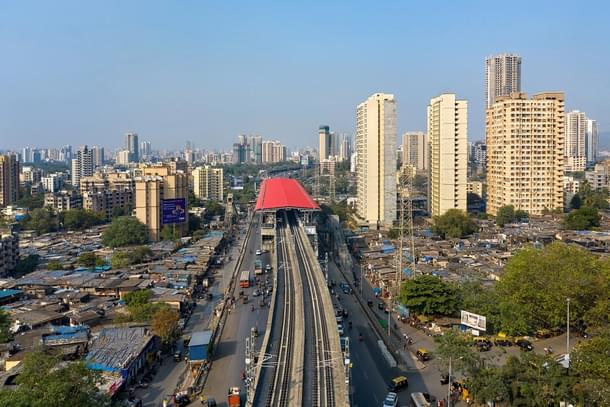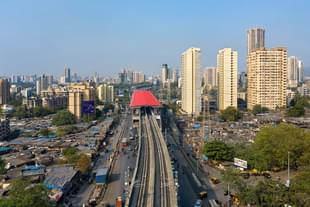Infrastructure
India's Metro Network Set To Overtake America's, Poised To Become World's Second-Largest
V Bhagya Subhashini
Aug 19, 2024, 11:50 AM | Updated 11:50 AM IST
Save & read from anywhere!
Bookmark stories for easy access on any device or the Swarajya app.


Union Housing and Urban Affairs Minister Manohar Lal Khattar announced that metro rail services have now been extended to 21 cities across India.
He emphasised the rapid progress, noting that metro line construction has surged from 600 metres per month before 2014 to six kilometres per month today.
He also stated that prior to 2014, the metro network spanned just 248 kilometres in five cities. Over the last decade, 700 kilometres of new lines have been made operational, bringing the total length to 945 kilometres.
India has also developed four state-of-the-art metro coach manufacturing facilities, producing over 1,000 coaches in the last five years.
With the approval of three new metro projects, India now has 1,018 kilometres of metro lines under construction. On Friday (16 August), the Union Cabinet approved projects for Bengaluru, Pune and Thane, with a combined cost of Rs 30,765 crore.
Currently, China leads in terms of metro infrastructure with over 4,201 km of operational metro systems. The US has the second largest metro network with about 1,408 km. India ranks third globally in terms of operational metro network length.
The minister expressed confidence that India will soon surpass the US in this regard, reports The New Indian Express.
The average cost of building a metro is currently around Rs 407 crore per km. The cost depends largely on whether the metro is built underground (higher) or at ground level. The other factor that influences the cost is the timeliness of implementation. Cost escalations are imminent whenever the projects are delayed due to design or implementation issues.
Around one crore passengers use the metro daily across India, with 73 lakh commuters in the Delhi NCR region alone. The metro system, which began in 2002 under the leadership of former prime minister Atal Bihari Vajpayee, is widely credited with transforming urban transportation in the country.
Internationally, the Delhi Metro Rail Corporation is executing metro projects in Bangladesh and providing consultancy services in Jakarta, with further interest from countries such as Israel, Saudi Arabia, Kenya, and El Salvador.
V Bhagya Subhashini is a staff writer at Swarajya. She tracks infrastructure developments.





